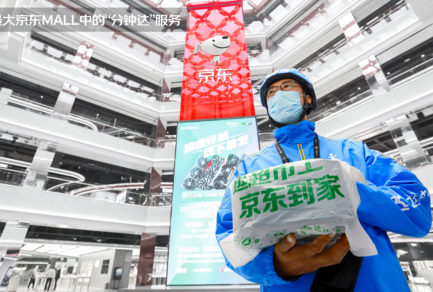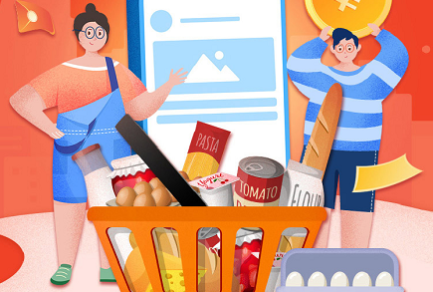Mar 4, 2021|
In-depth Report: The Developing Cold Chain Capabilities of JD Logistics
by Yuchuan Wang
As China’s homegrown COVID-19 vaccines require two to three doses per person, the country has seen a demand for transporting 2.8 to 4.2 billion doses on the market.
The enormous demand for the vaccine is accelerating the development of global cold chain logistics, especially in China where the infrastructure has relatively lagged behind developed countries. This development has acted as the catalyst to arm third-party logistics providers that previously played a smaller role when the industry was led by only a few vertical players.
JD Logistics (JDL), the logistics arm of JD.com, is currently transporting COVID-19 vaccines voluntarily in Beijing, with cold chain vans packed with domestic vaccines handling the last-mile delivery to designated vaccination points on a daily basis.
JDL was among the first batch of companies approved by China’s Ministry of Transport to ship COVID-19 vaccines across China, announced on Jan. 27, 2021. The company is expected to dispatch the vaccine to more regions nationwide.
The Last-Mile Transportation by JDL
Unlike genetic-modified mRNA vaccines which need to be stored at -20 or even -70 degrees Celsius, Chinese inactivated ones can be kept in a standard refrigerator at 2 to 8 degrees Celsius.
“But the transportation of vaccines still has one of the most strict requirements among all kinds of medical products,” said JDL’s Jinhua Zhao, who is responsible for the vaccine transportation project in Beijing.
In China, the government has required that all vehicles for COVID-19 vaccine transportation cannot transport any other products, even other type of vaccines or pharmaceutical products, out of safety considerations.
According to Yuming Qin, secretary-general of the Cold Chain Logistics Committee of China Federation of Logistics & Purchasing (CFLP), it is vital to make the whole process traceable and the temperature controllable.
Fully traceable process
Each of the 4.2-meter long JD cold chain trucks is equipped with six cameras, transmitting real-time video to the control-center in JD’s Northern China cold chain logistics park in Beijing.
“One camera is placed in the front of the van, one on the back, two inside the cab, and two in the refrigerator,” described Zhao.
“One driver and one safety supervisor, who is also the operator, will be responsible for the delivery. They are bundled with the plate number, which means they cannot switch to drive other trucks,” Zhao adds. “There is a double-lock in the back of the truck that cannot be unlocked by only one staff.”
“We select staff from those who have worked at JD for at least one year with good performance track record.”
To prevent the vaccines from contamination, operators must wear gloves when packing the vaccine. The cold chain vehicles will also be conducted with thorough disinfection before each transportation. Upon arrival, staff will need to print the full process temperature curve through a Bluetooth printer installed on the truck.
Full-procedure temperature control
The accuracy of the thermometer for the transportation of COVID-19 vaccines is required to be within ±0.5 degrees Celsius. To monitor the real-time temperatures, the trucks are equipped with three systems, namely the GPS, temperature monitoring and alarm system respectively.
Apart from the GPS which records location information, the temperature monitoring system records the refrigerator’s temperature every five minutes. If an abnormal temperature that is outside the programmed norms is detected, the checking frequency will be raised to every two minutes.
The alarm system consists of a sound alarm, system alarm and message alarm. “If an emergency such as temperature excursions occurs, not only the driver and the driver’s leader, but also JD’s quality control personnel and the transportation project leader will receive the message,” said Zhao.
In fact, the chance for such emergencies to happen is quite small.
First, each of the cold chain trucks is customized to be equipped with double refrigerators. When one of them happens to shutdown, the other is able to keep running even when the vehicle stalls.
Second, coolers, the insulated containers, form an additional temperature control layer for vaccines. JD has customized three different sizes of coolers: 56L, 70L and 97L. Taking the 56L one as an example, a cooler can be loaded with more than 400 doses of vaccines.
“Compared with ordinary coolers for fresh produce, the customized container can maintain its inside temperature between the range of 2-8 degrees Celsius in as long as 96 hours, while the ordinary packaging can endure only 48 hours,” Zhao explains. “In other words, the cooler can store vaccines for periods of up to four days when there is no external refrigerator.”
Each of the coolers has four layers: the outer box, the ice layer, the vacuum layer and the shipping packaging layer. A temperature probe is placed inside to monitor the real time temperature and display the degree information on the screen outside the cooler.
The vacuum has almost non thermal conductivity, and it is one of the best methods of insulating a system.
Coolers are key to the temperature control when the external environment shifts. “No matter if it is to load from the warehouse to vehicles, or unload from vehicles to vaccination points, vaccines are required to be carried by coolers, even it is just a few meters’ walk,” said Guiping Xu from JDL’s pharmaceutical cold chain team.
From Cold Chain to Pharmaceutical Warehousing and Transportation
Since 2014, JDL started building out its extensive cold chain logistics network and launched JD Cold Chain in 2018. As a leading F2B2C (Factory-to-Business-to-Consumer) service platform for cold chain warehousing, transportation and delivery, it aims to provide safe, secure and optimized logistics service that is time- and temperature- sensitive.
As of the start of 2021, JD’s cold chain logistics infrastructure for fresh produce and perishable products consists of 87 temperature-controlled warehouses and approximately 2,000 specialized vehicles with a network covering 31 provinces, municipalities and autonomous regions, serving both individual and corporate customers.
The company has also applied blockchain technology to trace the origin, production date, circulation information and even nucleic acid test result and disinfection information of fresh produce by scanning a QR code attached to products. Dedicated cold chain warehousing areas for imported products were also established to execute thorough disinfection and COVID-19 tests to secure food safety and increase warehouse efficiency in receiving imported produce.
As the demand for integrated supply chain logistics services in the pharmaceutical industry is expected to grow rapidly, JDL has been enhancing its pharmaceutical warehousing capabilities to meet the requirements brought by the wider use of biological materials.
According to the China Pharmaceutical Logistics Development Report released by the China Federation of Logistics & Purchasing (CFLP), the market for pharmaceutical products circulation is growing at an annual rate of 8% and is believed to have surpassed RMB 4,000 billion yuan in 2020.
So far, there are 20 JD warehouses designated for pharmaceutical products and medical instruments in China. Most recently in January, JD added a pharmaceutical warehouse in Shenyang, Liaoning province and is building cold chain sorting centers for pharmaceuticals in Beijing, Shanghai, Guangzhou, Chengdu, Wuhan, Xi’an and Shenyang.
JDL’s pharmaceutical warehouse in Shenyang
Since the outbreak of COVID-19, JD has consistently transported nucleic acid testing kits, insulin and other medical supplies from medical institutions to cities in China. Last October, the company also inked a partnership with Hubei province based Humanwell Healthcare Group to help the healthcare solutions provider build an integrated smart medical supply chain management system.
In the future, JDL will further leverage its advantages in logistics infrastructure, network and capacity, apply advanced technologies and continue investment to drive innovation in this area.

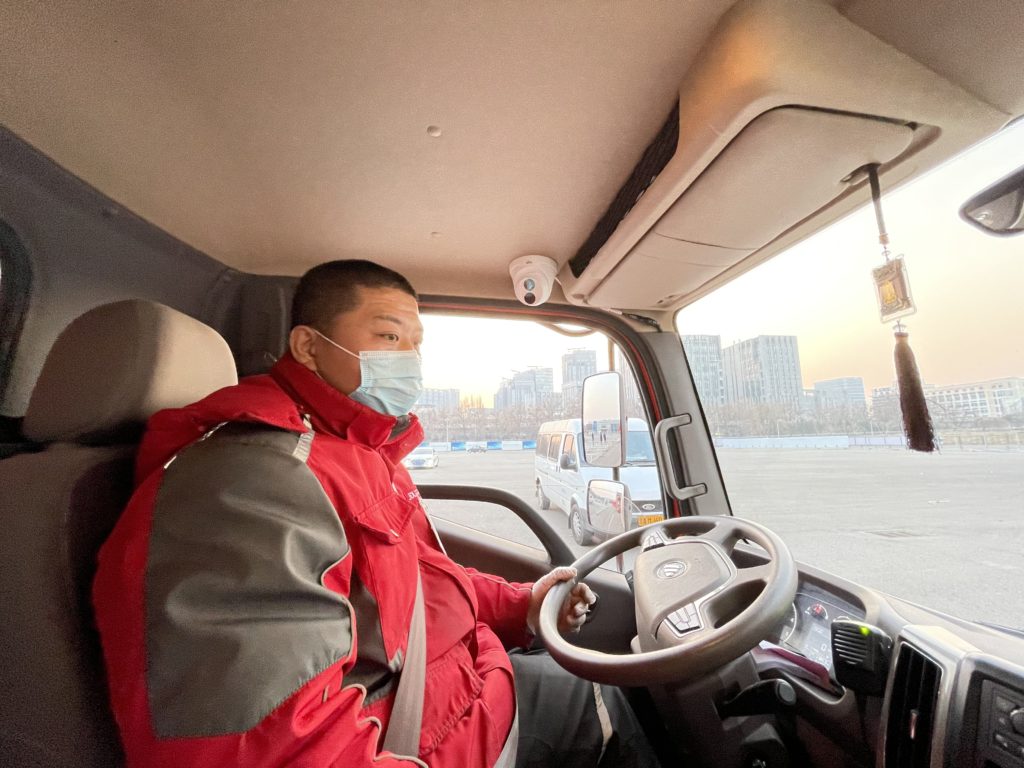
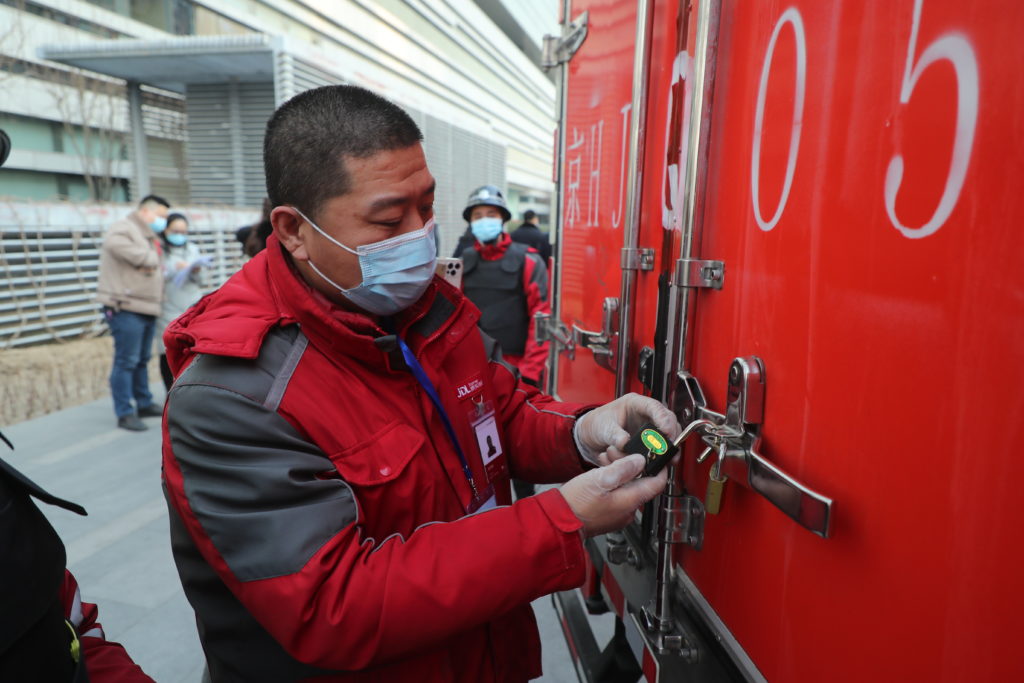
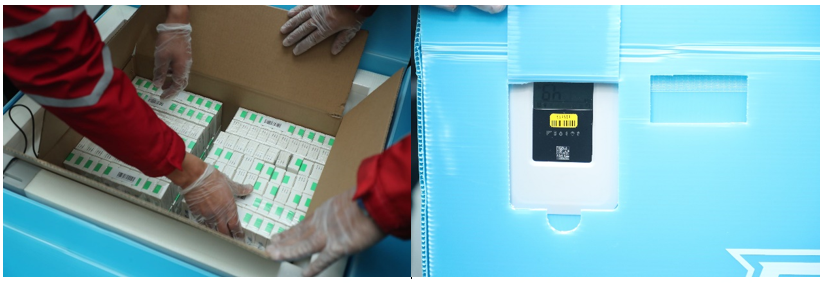
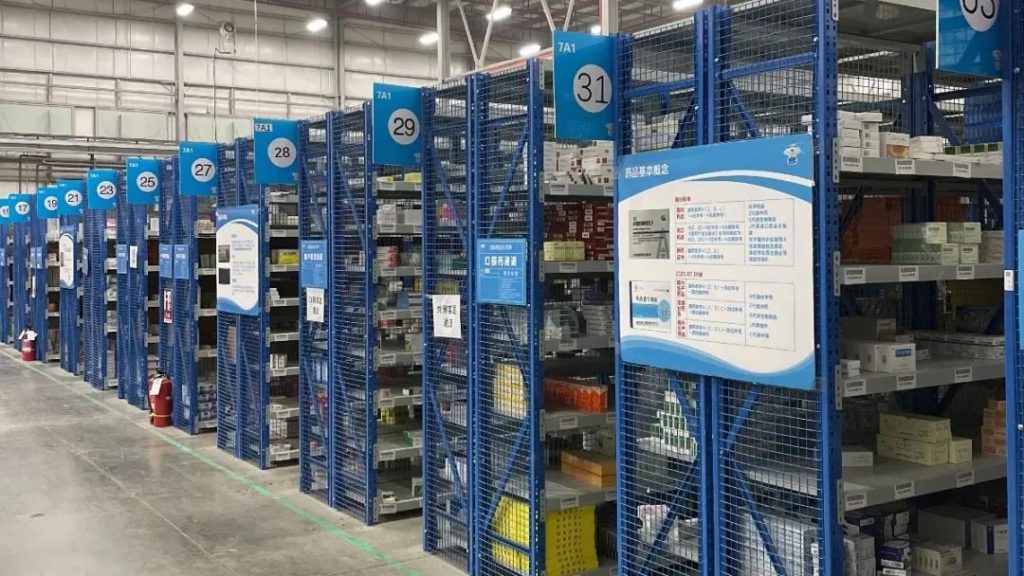




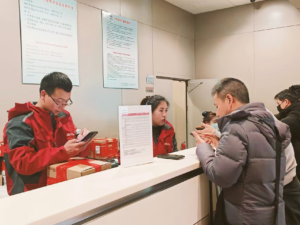 This Harbin tourism boom has also spurred a surge in sales of winter apparel. JD.com’s data indicates a rapid growth in the sales of warm clothing items such as down jackets, snow boots, and thermal underwear between January 1st and 7th. The sales growth is especially pronounced in southern provinces and cities such as Jiangsu, Zhejiang, Guangdong, Sichuan, and Shanghai. Notably, tall snow boots registered a 206% year-on-year increase in transactions, while padded cotton caps and thickened long down jackets soared by 158% and 134%, respectively. Beyond clothing, travel gear has also seen a considerable uptick, with a 98% year-on-year growth in transactions for large suitcases and travel backpacks in these southern regions.
This Harbin tourism boom has also spurred a surge in sales of winter apparel. JD.com’s data indicates a rapid growth in the sales of warm clothing items such as down jackets, snow boots, and thermal underwear between January 1st and 7th. The sales growth is especially pronounced in southern provinces and cities such as Jiangsu, Zhejiang, Guangdong, Sichuan, and Shanghai. Notably, tall snow boots registered a 206% year-on-year increase in transactions, while padded cotton caps and thickened long down jackets soared by 158% and 134%, respectively. Beyond clothing, travel gear has also seen a considerable uptick, with a 98% year-on-year growth in transactions for large suitcases and travel backpacks in these southern regions. JD Worldwide Holds Super Category Day for Imported Products
JD Worldwide Holds Super Category Day for Imported Products

